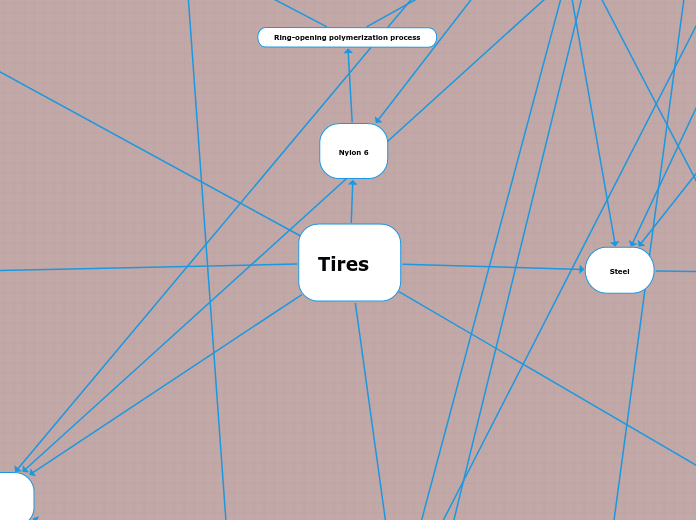Tires
Steel
Rolling Mill
Reheat Furnance
Basic Oxygen Furnace
Blast Furnace
Iron
Coal Coke
Coke Oven
Coal
Limestone
Natural Rubber
Vulcanization
Sulfur
Drying Process
Rubber Rolling Machine
Coagulation Process
Formic Acid
Rubber Tree Tapping
Rubber Tree
Synthetic Rubber (Styrene Butadiene Rubber)
Vulcanization
Solution Polymerization
Styrene and Isoprene
Naphtha
Oil
Natural Gas
Emulsion Polymerization
Carbon Black
Dryer
Beading Machine
Pulverizer
Collection Bag
Heat Exchanger
Carbon Black Reactor
Feedstock oil
Silica
Nylon 6
Ring-opening polymerization process
Hexamethylenediamine
Adipic acid (catalyst)
Environmental Impacts of Tires
Disposing of Tires
50% of tires are recycled
Tires are left in landfills or burned
Burning tires creates a lot of pollution because the synthetic rubber they contain is primary oil/hydrocarbons
Manufacturing Tires
Tires contain about 25% synthetic rubber which contains oil and other hydrocarbons that are harmful to environment when extracted
Tires contain a lot of metal which are very polluting to extract
